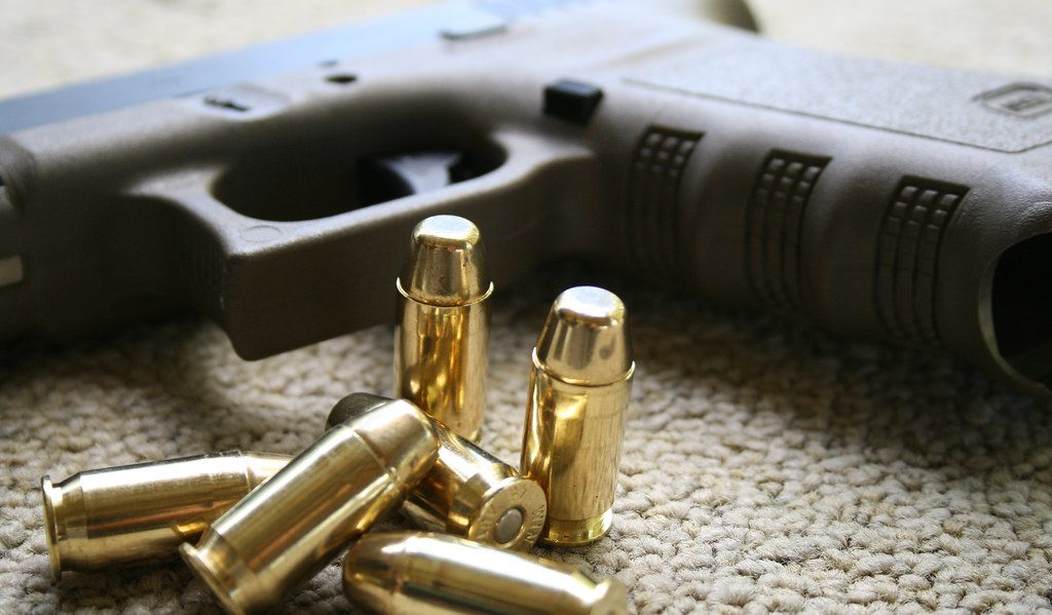Most people who wade into the debate around gun control and the Second Amendment in the wake of a mass shooting are usually not well-versed in the topic of firearms in general.
As a result, those of us who do understand the issue tend to have a bit of a leg up in the inevitable debates that will erupt.
Luckily, Business Insider has a handy guide to gun terms for those who are uninitiated.
Yes, it’s as bad as you think it is.
Given the ongoing and divisive debate over gun control in the US, it’s helpful to understand the breakdown of some of the most important terms that frequently come up after high-profile mass shootings.
Some of these terms might appear inconsequential, but they relate strongly to discussions on what type of guns and firearm accessories might be regulated more strictly or even banned. And some in the pro-Second Amendment camp have been known to mock people calling for new gun laws when they use incorrect firearm terminology.
In the renewed discussion surrounding gun control following high-profile mass shootings in Nashville, Tennessee, Colorado Springs, Highland Park, Illinois, and Uvalde, Texas, familiar disagreements are arising over terminology surrounding firearms.
Now, in fairness, it’s not universally awful. It does a good job on describing the difference between semi-automatic and automatic and magazine versus clip. It even touches on the definition of assault weapon in a way that wasn’t totally awful.
But then it goes off the rails.
High-capacity magazines
High- or large-capacity magazines are typically defined as ammunition-feeding devices holding more than 10 rounds. Nine states ban high-capacity magazines.
High-capacity magazines are capable of holding up to 100 rounds of ammunition, allowing for dozens of shots to be fired off before reloading. The rifle used in a 2019 mass shooting in Dayton, Ohio, was affixed with a 100-round drum magazine.
Except they fail to mention that these so-called high-capacity magazines are standard for most firearms sold in the United States outside of states that set an arbitrary 10-round limit.
They’re not “high-capacity” or “large-capacity.” They’re standard capacity.
This is the norm for the largest majority of firearms solid in the United States today. If you’re going to claim your guide will clear up the waters on the issue of firearms, you should probably include the fact that what you’re demonizing is actually the standard except where prohibited by law.
It doesn’t get better, really.
Red-flag law
Red-flag laws, also known as Extreme Risk laws, allow judges to temporarily confiscate a person’s firearms if the person is considered a danger to themself or others.
Nineteen states and Washington, DC, have implemented some form of a red-flag law, according to Everytown for Gun Safety: California, Colorado, Connecticut, Delaware, Florida, Hawaii, Illinois, Indiana, Maryland, Massachusetts, Nevada, New Jersey, New Mexico, New York, Oregon, Rhode Island, Vermont, Virginia, and Washington.
Missing here is the fact that the judge who issues the order does so without ever actually seeing or interacting with the person in question. They’re rendering a decision about whether someone is fit to maintain their right to keep and bear arms purely on hearsay evidence.
There is no due process involved.
Further, and arguably more importantly, this person who is a supposed danger to themselves or others is still walking around, free to do whatever harm they so wish.
I’m sorry, but that doesn’t make a lot of sense to me.
Gun-show loophole
The so-called gun-show loophole is among the most discussed topics in relation to calls for gun-safety advocates for expanded background checks.
Gun-show loophole is a catch-all phrase referring to the sale of firearms by unlicensed, private sellers at gun shows and other venues — including the internet — without the involvement of background checks.
Federally licensed gun dealers are required to run background checks, but not all sellers are required to be licensed — laws vary by state. In this sense, there is a “loophole” that allows private sellers to sell firearms without conducting background checks.
It’s not a loophole.
It’s literally just two private citizens conducting a transaction like they would for any other good. It’s simply a gun and the two parties are making contact at a gun show.
Would it make people feel better if they went out to the parking lot to conduct the sale?
See, the term “loophole” is loaded. It looks like someone doing something shady and only getting away with it because of some quirk of the law. That’s absolutely not what happens and anyone with a passing familiarity with it knows that to be the case.
Yet they don’t stop there.
The Bureau of Alcohol, Tobacco, Firearms, and Explosives is the federal agency that licenses gun dealers.
“As a general rule, you will need a license if you repetitively buy and sell firearms with the principal motive of making a profit,” the ATF says. “In contrast, if you only make occasional sales of firearms from your personal collection, you do not need to be licensed.”
The implementation of a federal law requiring universal background checks, or background checks for all gun sales, has been at the top of the wish list for gun-control advocates for years.
It’s also a policy that the vast majority of Americans support. In polling conducted by Pew Research Center in late 2018, 91% of Democrats and 79% of Republicans favored background checks for private gun sales and sales at gun shows.
Which is why they’ve been voted down so many times when they’ve appeared on state ballots, right?
The problem is, as we now know, most people don’t actually know what’s involved. The polling takes a broad snapshot of what people think when they know little about the measure in question, but when they learn, those positions change.
Somehow, that didn’t make it in their handy guide of gun terms. Shocking, I know.
Honestly, Business Insider should stick to business coverage. I don’t know that they’re any good at that, either, but they almost have to be better at it than they are at gun coverage.








Join the conversation as a VIP Member